Careers in Exercise Science
Career Opportunities for Exercise Science Majors
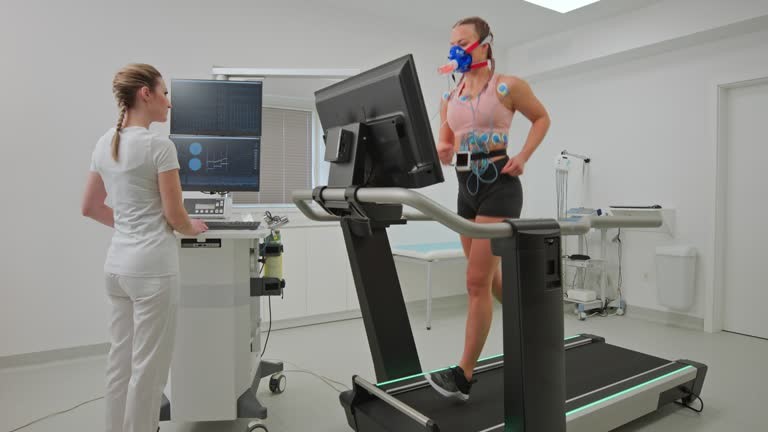
Clinical Exercise Physiology is a healthcare profession involved in designing exercise program for clients, patients, and athletes to enhance performance and reduce the risk of chronic diseases: including cardiovascular, metabolic, neurologic and pulmonary diseases. They work in weight management programs associated with obesity and use a preventative approach to help individuals reduce the risk of developing orthopedic injuries. Clinical Exercise Physiologists also work in conjunction with other health care providers including medical doctors, physical therapists, and nurses to design scientifically supported exercise programs for patients as they recover from or manage illness or injury. They may be involved in the education, program development, and monitoring of clients and patients in medical/clinical settings. Hospital based exercise programs designed to reach the community are increasing to provide a safer experience to individuals at risk with a more experienced staff.
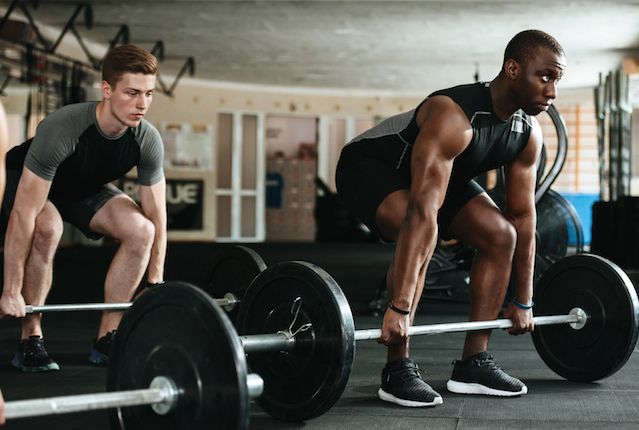
Strength and Conditioning programs that span from youth to seniors have evolved dramatically over the last decade. Clients looking to enhance performance for sport, recreation, or simply to improve activities of daily living need the knowledge and skills Exercise Physiologists provide. Strength and Conditioning coaches can work in private facilities, high schools, all levels of collegiate athletics, and all levels of professional sports.
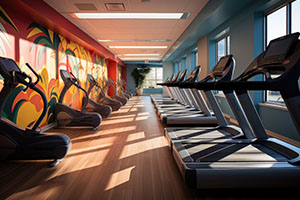
Corporate Fitness programs are designed to reduce the health care cost and increase productivity for employers by integrating exercise, nutrition, lifestyle programs for its employees. These programs may focus on weight management, stress reduction, and the reduction of risk factors for a variety of health conditions including cardiovascular and metabolic disease. These programs are many times offered to the employee’s families and retirees as an added benefit.
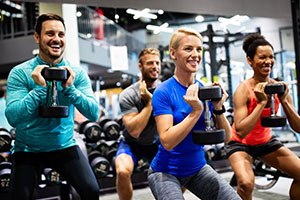
Community Fitness and Wellness Settings, such as the YMCA, offer a wide range of fitness, wellness, and recreation programs and require a variety of professional skills. Programs and services may target children, teens, senior citizens and other special populations. As non-profit organizations, their goal is to improve the health and well-being of members of their identified community.

Youth Fitness programs are designed to improve the physical activity habits of children and adolescents. Physical literacy improves the ability, confidence and desire of today’s youth to engage in a physically active lifestyles through positive physical activity experiences. Experts in the field of youth fitness understand that youth are not miniature adults. Their physiological, psychological and sociological skills are different and require a unique approach to prescribing exercise and or physical activity.
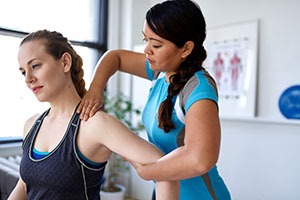
Graduate School and Health Care Professions are also options with the Exercise Science degree. This degree will prepare students for graduate-level health care academic programs in physical and occupational therapy, physician assistant, medical, osteopathic and chiropractic programs. Students are also prepared for graduate work in areas such as exercise physiology, biomechanics and other exercise science-based programs. While an undergraduate degree is sufficient to obtain a professional position in the field, a master’s degree will provide more options and greater growth potential. The Exercise Science program, in most cases, will allow students to gain all the prerequisites required for most health care fields within the course work. With proper guidance through the academic and health profession advisers, students can earn their undergraduate degree and obtain most if not all prerequisites within the 120 credit hours. The course work required for Exercise Science provides a very strong preparation for many of the courses students will take in graduate school, including:
| Applied Biomechanics | Exercise Physiology | Research Methods |
| Motor Control and Learning | Exercise for Special Populations | Human Disease and Epidemiology |
| EKG Interpretation & Basic Pharmacology | Exercise Prescription | Nutrition for Fitness |
Research
Research opportunities are available, encouraged, and supported throughout the Exercise Science undergraduate program. Students will perform a 250-hour internship which is required for application to many graduate programs. Students are required to participate in 40 Professional Development Hours throughout the program. This provides hands-on opportunities for students to learn about their future career and to ensure it is right for them. They have the opportunity to learn from experts in their field of interest.